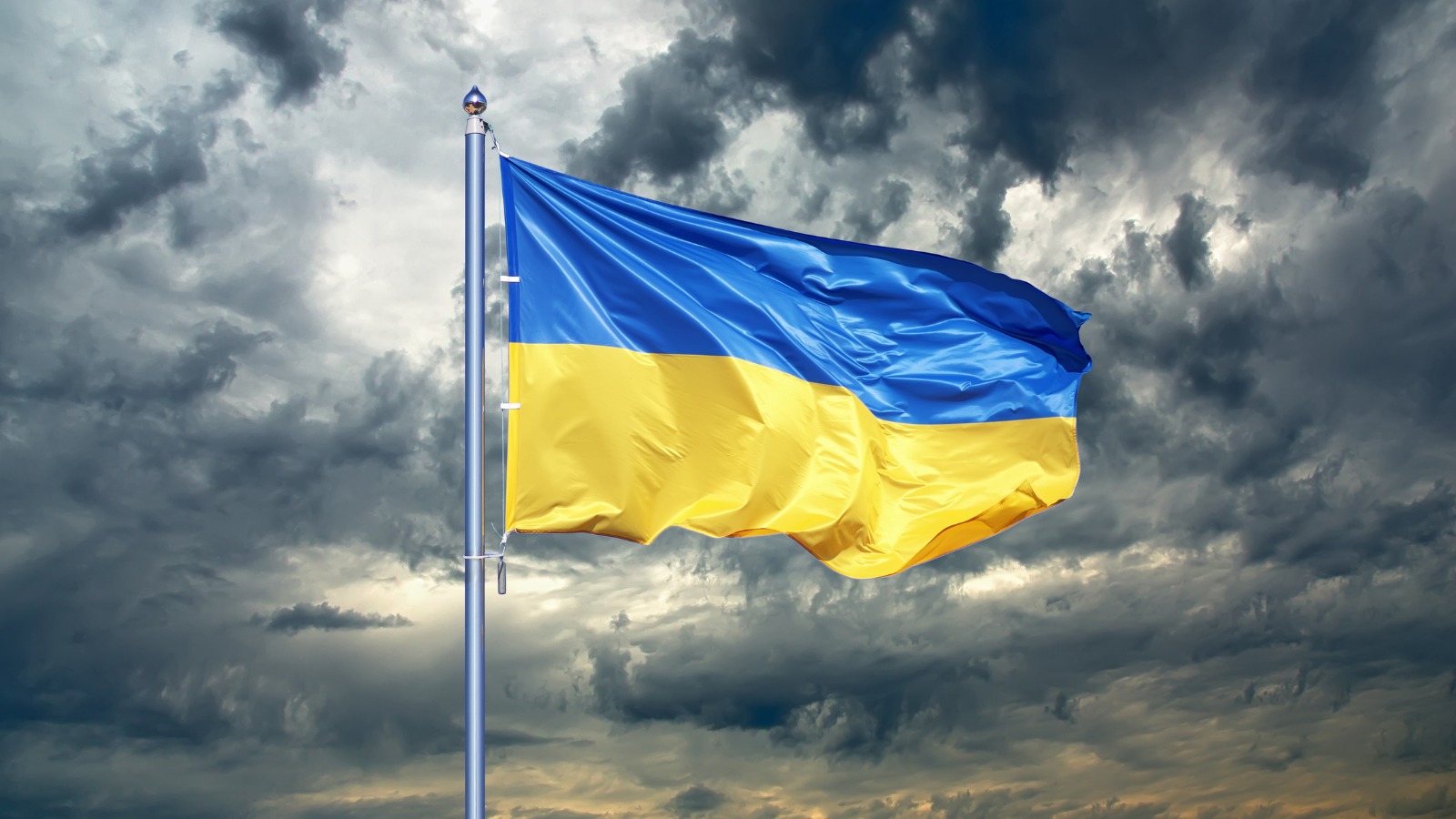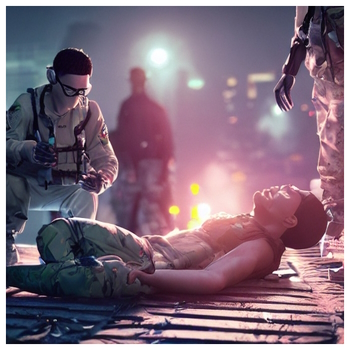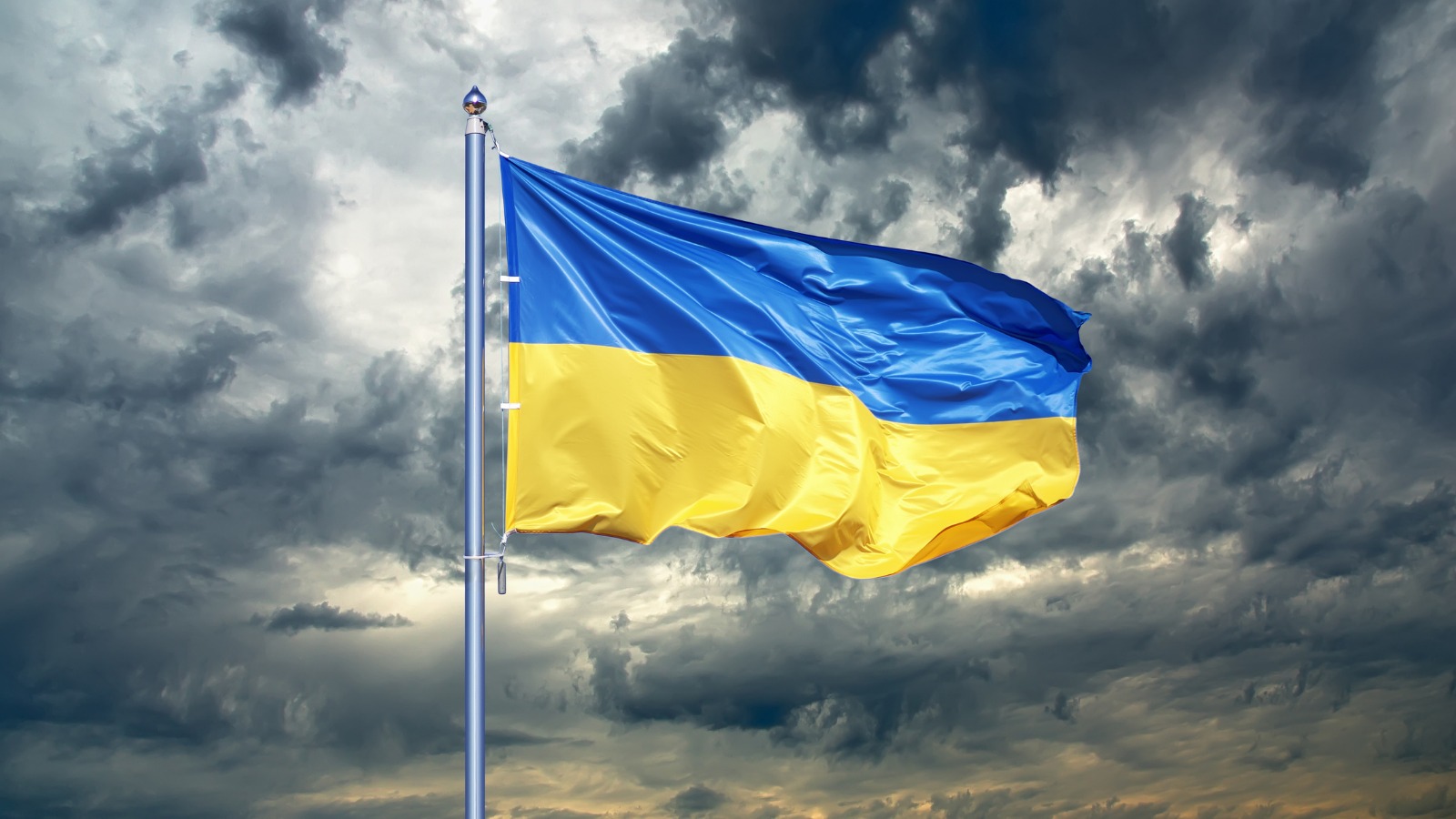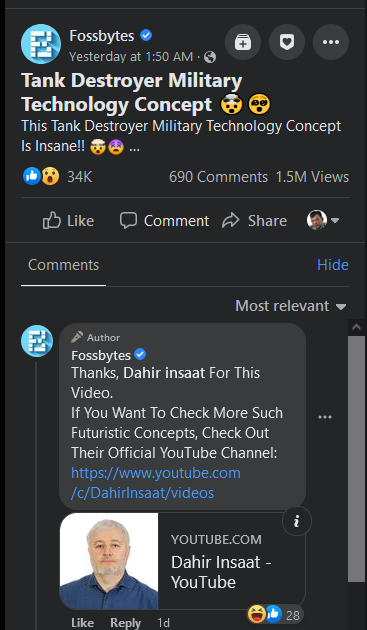I have avoided this topic for some time.
I oversaturated myself yesterday about the college protests over the Israeli-Hamas war, where civilians have been showing up dead faster than police can arrest protesters around the world in the United States. Clearly, I have a bias, and that bias is for civilians, not a ‘side’, but in supporting the civilians, I end up having to look hard at the people killing and maiming them.
The children didn’t do anything wrong but be born in an accident of geography that happens to be behind walls – or in front of them – on every side of their existence. That’s pretty shitty1.
As someone without a distinct tribe, that’s what I see. As a TCK and a hyper-multicultural, I’m not vested in the tribalisms of yesterday, the present, and the future. I just see people.
This morning, washing dishes, I thought about it, and I recalled my youth and what my mother said about cleaning my room.
Anecdote on Perspective
As a boy, my room was… well, not something that would pass any form of inspection. My mother, who then in the 1970s spent all day cleaning, boycotted my room for her own reasons – some selfish, some not – and tasked me with cleaning my room. This was one of the first responsibilities given to me, and I did not like it. Since I didn’t like it, I didn’t spend much time on it – but time is relative, and as a child, play time is always less time than responsibility time.
This did not work well for my mother, who would ask me if I had cleaned my room and I would say, “Yes!”. Of course I said that. The backyard beckoned, the friends on bicycles beckoned, even the dog beckoned. And, of course, it was never clean. She would stand at the door, look in my room, and say, “That’s not clean. Keep cleaning.”
I didn’t know what she meant. Everything is exactly where it should be, in my eyes, even the dirty socks in the toybox thrown there in a rush so I could go out and play. I had no idea what she meant.
One day, apparently after taking a deep breath, she stood at the door of my room and looked in and said, “Come here.” So I did, and she said, “When you look at your room, pretend that you’re me and look at your room from here.” From that vantage, I could see I had not hidden my mess as well as I had thought.
Soon, my room looked clean from that vantage point, a tribute to my mother showing a different perspective, flawed by being twice my height at the time. It was flawed for other reasons, but from her perspective, it worked because she didn’t have to look at a dirty room when she walked by2.
This would serve me well on Navy and Marine Corps bases: Learning what inspectors looked for and making sure it was sat(isfactory). But it didn’t teach me why the room had to be clean. That would happen as I matured.
Battles of Perspectives.
The world has become so polarized that it seems often we forget to consider things outside of ourselves, or our tribes. As someone generally outside of the tribalisms, I often see individuals and groups fighting over things that they disagree about and forgetting everything they agree about. Sometimes it’s a matter of social inertia. Not everyone is cut out to be a free thinking individual3. I used to get upset about the blind followers, but having interacted with them over a half-century, I understand why some of them are the way they are and are probably better off that way.
Even so, the leaders of groups have a responsibility to their followers to be mindful of what they’re doing. Eventually, because humans tend to more vocal disagreement than agreement, people split off and do their own thing – which gives us diversity of perspectives that we often ignore. As someone expressly against the killing of children, Israel’s actions and policies do not align with what I would be willing to agree with – yet I cannot deny that the Jews I have known over the years deserve a place to live in peace. Israel increasingly doesn’t seem to be that place for anyone. I’m sorry if that offends anyone, but if you have to kill children to protect yourselves, you have to wonder what you’re protecting yourself from.
On the flip side, I don’t think kidnapping civilians is something that’s tenable. In fact, it seems an act of desperation, that things are so bad that you need to make a point by absconding with another human to imprison them until someone else meets your terms. Anything negotiated at gunpoint only results in ceasefires, and ceasefires are just pauses in war where children are born to die when the ceasefire is over.
Many people are trying to clean the room by hiding their socks in their toyboxes when it comes to ethical stances, while some are simply protesting to make the world a better place – a better place from their own perspective.
Protests.
When things get bad enough, people are moved to side with something because they want to feel like they have done something. When I saw the invasion of Ukraine, I wanted to go over and help with the medical as a former Navy Corpsman, and explored it seriously only to find that I had become old, I had a wonky knee sometimes, that battlefield medicine had evolved a lot in tools and equipment, and that I would be a liability in a war zone4. I had purchased tickets to get there that I cancelled, not because of the potential for death or injury to myself, but because I could cause others to die or be injured.
It was humbling in ways that I still wrestle with at times.
So I got on Twitter, pre-Musk era, and supported there through social media, because I could do that but I found myself looking at the mob and seeing things that I considered overstepping. I pulled back. I still support Ukraine sovereignty, but I am careful about weighing the cost to others.
Protesting for or against something isn’t as high of stakes, but in a way it is. I believe in peaceful protest, but peaceful protest always gets people together with perspectives that may be slightly different, that we overlook because at the time they may work towards our ends – and sometimes that hits us in the soft nether regions later on and undoes the good we thought we were doing.
It’s like when the Soviet Union was still a thing. Pilots in Germany would come perilously close to starting a war as the pilots tested each other constantly. With too many people on alert for different perspectives interacting so closely, things can get very hairy very quickly. Sooner or later, something goes just a little too far and both sides need to pull back because they don’t actually want a war. Only fools want war, thinking it’s like a Hollywood production of Rambo. If fools were the only victims of other fools, humanity would be much stronger for it, but fools have a tendency to kill people who are not fools simply because they disagree with them – even if they’re on the same ‘side’. There’s really no such thing as friendly fire. Just fools with excuses.
We should first do no harm.
Israel And Palestine
The sad truth is that until now, Palestinian children weren’t really counted when they were alive and now we count their dead. The sad truth is that the whole situation could have been resolved decades ago and the Palestinians have found themselves to be convenient pawns of the big players in Middle Eastern politics. The sad truth is that those same children grow to become adults and don’t want to be pawns anymore.
It would seem that the protesters for the Palestinians have the same thought, that they see something that should be fixed and want it to be fixed. This I can agree with wholeheartedly and without reservation. It’s clean, it’s ethical, and it reflects the values of humanity that we’ve all been taught at some basic level.
What I cannot agree with is supporting Hamas. What I cannot agree with is supporting the policies of Israel that have galvanized the attention of the world by their ruthlessness and impunity for human life, as Russia has shown in Ukraine.
I’m all for people living peacefully, but that seems almost oxymoronic because of the lack of mindfulness of leaders of followers, and of followers that should know better.
Now the violence is spilling blood on the other side of the planet, all because we as a species have let the issue sit for far too long.
I don’t know what the answer is. I know what the answers aren’t.
The answer is not ignoring the problem – we’ve done that for decades. The answer is not funding weapons to one side, ally or not. The answer is not becoming as polarized as we allowed the whole situation to become. The answer is not creating laws that make it illegal to criticize a country’s policies and actions. The answer is not violence between protesting groups. The answer is not making the world more unsafe. The answer is not giving to one group at the cost of another. The answer is not electing politicians who ignore the problems because of election cycles while effectively shouting ‘squirrel!’ and pointing at some other issue.
Sometimes, we have to sit down and wrestle with our humanity and acknowledge how ugly we can be, even if our own tribes don’t see it because they’re too busy dehumanizing the other side.
Humans are always stronger together, except when humans are together.
So I go back to my favorite quote and wonder what we can build together that would make things better, because the world is broken and we can’t afford the amount of glue to fix it. We have the technology and will to do great harm, but no one seems as intent on the greater good.
We should change that, through social media, through interacting with each other even when we disagree, and find ways to build things because otherwise we’ll run out of things to destroy.
We should be better than this. Let’s try that.
- I try not to use profanity, but sometimes profanity is the only way to express something. I wrestled with that sentence. ↩︎
- Closing the door would have helped her too, but it wasn’t something I would dare say at the time. ↩︎
- including some free thinking individuals. ↩︎
- I had good friends who allowed me the dignity of coming to that conclusion myself. ↩︎







 One of the things I have been very involved with over the past months is Ukraine, particularly on Twitter but also in other ways. Yesterday, in a Twitter space hosted by
One of the things I have been very involved with over the past months is Ukraine, particularly on Twitter but also in other ways. Yesterday, in a Twitter space hosted by  Today, Vladimir Putin made quite the statemet regarding sovereignty and colonies. The truth of the statement is without question. There is no in intermediate state: either a country is sovereign or it is a colony.
Today, Vladimir Putin made quite the statemet regarding sovereignty and colonies. The truth of the statement is without question. There is no in intermediate state: either a country is sovereign or it is a colony.  Every now and then, I come across someone from India who has something crappy to say about the Indian diaspora. It makes little sense to me since my roots are only partly East Indian, and I don’t identify as Indian (or anything other than ‘Other’). In my youth, I was constantly asked about this in Trinidad and Tobago because to my father’s side of the family, I was not seen as Indian, and in Trinidad and Tobago at the time – and even now – they would ask me if I was white or Indian.
Every now and then, I come across someone from India who has something crappy to say about the Indian diaspora. It makes little sense to me since my roots are only partly East Indian, and I don’t identify as Indian (or anything other than ‘Other’). In my youth, I was constantly asked about this in Trinidad and Tobago because to my father’s side of the family, I was not seen as Indian, and in Trinidad and Tobago at the time – and even now – they would ask me if I was white or Indian. Yesterday, I
Yesterday, I  And I also understand that publishers like Fossbytes.com just churn content, though they did make it a point to hail out the Russian inventor in the contents and that seemed pretty much like they knew what they were doing and pushing a bit on something they knew would be controversial. The comments in that thread certainly have their stats jumping, I’m sure, and hey, as long as the stats are jumping, publishers don’t care as long as they get the views.
And I also understand that publishers like Fossbytes.com just churn content, though they did make it a point to hail out the Russian inventor in the contents and that seemed pretty much like they knew what they were doing and pushing a bit on something they knew would be controversial. The comments in that thread certainly have their stats jumping, I’m sure, and hey, as long as the stats are jumping, publishers don’t care as long as they get the views.